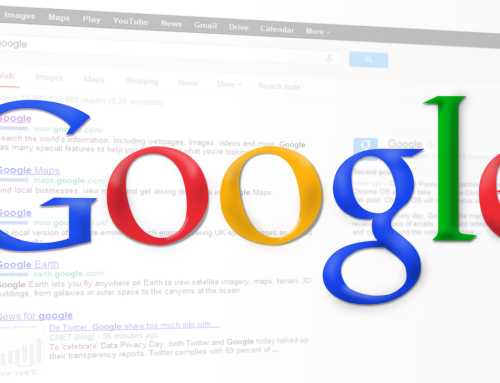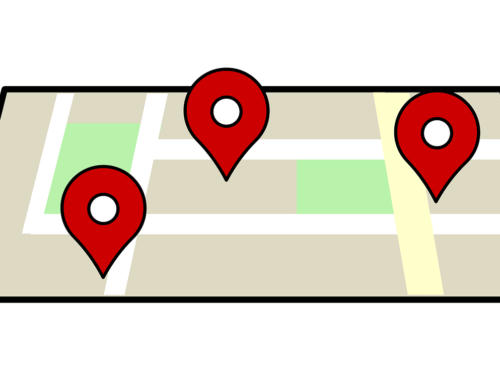Decentralized And Centralized Apps
If you would like to create an app for your business, you face a dilemma. Should you choose a standard centralized app, or address a decentralized platform? More importantly, what’s the difference between the 2 and why does it mean for your business?
There’s no straightforward answer to the present question; it really depends on your goals and what you would like the app to try to to.
I’ll walk you thru the differences between both app types so you’ll decide the way to move forward together with your marketing and development goals.
What Is a Centralized App?
Centralized apps are operated and owned by one company, and that they escape one server, or cluster of servers.
How it works is simple: Someone downloads a replica of the app, and therefore the app works by sending and receiving information from this server.
In other words, the app won’t work unless it’s in touch with this server. If the centralized server crashes, the app stops working across user devices until the matter is fixed.
Examples of centralized apps include:
Facebook
Twitter
Instagram
WhatsApp
Netflix
What Is a Decentralized App?
A decentralized app, or “dApp,” runs on a blockchain network. instead of downloading an app, the user pays the developer a particular amount of cryptocurrency to download a “smart contract,” or ASCII text file.
Consulting with Neil Patel
See How My Agency Can Drive Massive Amounts of Traffic to Your Website
SEO – unlock massive amounts of SEO traffic. See real results.
Content Marketing – our team creates epic content which will get shared, get links, and attract traffic.
Paid Media – effective paid strategies with clear ROI.
BOOK A CALL
The code generates an entire new copy of the app on the user’s device, which creates a replacement “block” within the chain.
Here are some samples of decentralized apps:
BitTorrent
CryptoKitties
Rarible
Audius
MetaMask
Pros and Cons of Centralized Apps
Centralized apps have a couple of distinct advantages over dApps. because the developer, you keep full control over the app and the way it’s used. Centralized apps can generally handle higher traffic volumes.
What’s more, it’s much easier to update a centralized app since the update is shipped automatically to the user’s device.
All that said, there are some downsides. If there’s a instruction, nobody can use the app until the matter is resolved, which could inconvenience your customers. Additionally, you would possibly incur higher cybersecurity costs because you would like to guard the most server.
Pros and Cons of Decentralized Apps
Decentralized apps definitely have their advantages, counting on what you would like from your app.
First, as there’s no single server, users won’t lose access to the app if your server goes down. Second, since there’s no centralized storage, user data won’t be compromised if there’s a knowledge breach or hacking attempt.
From a marketing perspective, this might incentivize people to settle on dApps over centralized apps.
Still, Apps accompany a couple of drawbacks.
Your audience is smaller, since cryptocurrency and blockchain aren’t “mainstream” technologies yet. What’s more, as dApp transactions are often slower and costlier than centralized transactions, so you would possibly find it hard to draw people to your dApp within the short term.
Finally, since there’s no centralized rollout, it’s much harder to repair bugs or update the software across user devices.
Should You Create a Centralized or Decentralized App?
Only you’ll answer this question. However, there are two points to think about when weighing your options.
How far does one want to expand your app? Decentralized apps are an emerging market with over 70 million users worldwide, but much more users download centralized apps.
How much control does one want to retain? you’ll control how people use a centralized app, not a dApp. counting on your audience and business goals (e.g., if you’re all about erasing censorship), this won’t be a priority.
Don’t rush the choice. Spend time thinking through your options and what your company and customers need within the short and future. If you would like some extra help together with your decision-making, inspect my consulting services.
Resources for Centralized Apps
There’s plenty of great information out there around the way to build a centralized app, but it’s hard to understand which of them actually work. Here are my five top app building resources to urge you started:
Builder.ai: Quickly design and make a centralized app without coding knowledge. Simply decide what sort of app you would like to create, choose your design, and obtain going.
Android Developers: This developer page contains resources to assist you learn the fundamentals of Android app development, from creating your first centralized app to launching on Google Play.
Appy Pie: If you propose on building an iPad app, Appy Pie can walk you thru the method. From restaurant apps to talk bots, Appy Pie has the tools you would like to develop your first app.
Code With Chris: Want to create a centralized app, but don’t know where to start? inspect this guide. It breaks the whole process down into simple, manageable steps.
Lifewire: This guide brings together a number of the foremost helpful iPhone and iPad app development tools to assist you start. If you’re trying to find Appy Pie alternatives, inspect this guide.
Resources for Decentralized Apps
Ready to dive into building your first decentralized app? Read these resources before you start.
101 Blockchains: If you’re confused by dApp development, 101 Blockchains features a detailed user guide you’ll want to read. It’s designed for beginners, and it makes decentralized app development less daunting.
Ethereum: For dApp developers building on Ethereum, inspect this website. You’ll find an entire range of tutorials and guides to steer you thru decentralized app building, and a developer community for even more help.
Solidity: If you would like to create on Ethereum, you would like to find out Solidity, a coding language. the web site itself has some helpful resources to find out the code and understand the way to apply it effectively in dApp development.
Medium: Need help understanding smart contracts? This Medium page brings together some useful courses for learning about smart contracts and dApp creation.
Dapp University: If you’re struggling to form sense of blockchain, Ethereum, or the other a part of dApp development, inspect this tutorial from Dapp University. From generating code to Ethereum deployment, this full-length guide has you covered.
Centralized and Decentralized Apps FAQs
How does blockchain relate to centralized and decentralized apps?
Blockchain powers decentralized apps. Blockchain takes the control faraway from a centralized system and provides more power to users to innovate and luxuriate in the content.
What is a centralized network example?
An app that resides on one server or group of servers. To work, the app must be connected to the server. Twitter is an example of a centralized network.
What are dApps?
dApps, or decentralized apps, run on distributed networks instead of central servers. they need their own currency, so if users want to access premium features, they have to use cryptocurrency.
How do I monetize decentralized apps?
You can run a token launch, include a subscription element, offer a premium membership tier, or include in-app advertisements. The strategies are almost like how you monetize centralized apps.
Decentralized Versus Centralized Apps: Conclusion
Decentralized or centralized apps: which is better? actually, neither! It all depends on what proportion control you would like over your app within the future, the dimensions of your intended audience, and, to some extent, how you would like to plug your mobile app.
Now that you simply understand the pros and cons of every, you ought to be able to make a choice and begin building your app.
Have you opted for a centralized or a decentralized app? How is it working for you so far? Is there anything you would like you’d known before getting started?






